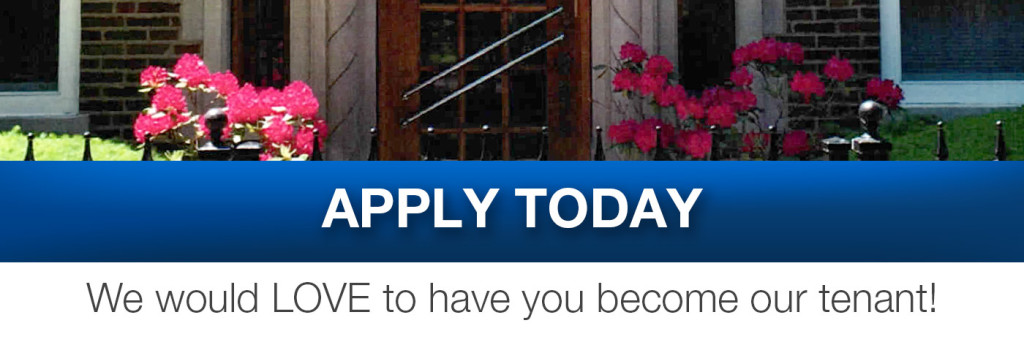
Tenant Tips
We hope these tips help make first time apartment hunting and living easier!
What is important to your friend might not be important to you. Everyone has different needs and wants.
Figure out what you MUST HAVE: is it convenience to public transportation? Reserved parking? Laundry facilities onsite? Dishwasher? Air conditioning? Utilities included in monthly rent? Once you figure out what you believe you must have, you will be better able to narrow down your apartment search and find your new home more quickly.
Check if there is a grocery store, dry cleaner, bank, close by that you won’t have to spend lots of travel time getting to for regular living requirements. Check crime statistics with the local police department or online. Talk to people you see on the street about their impressions about safety, quiet, ease of parking, etc.
If you aren’t in town to view the apartment, hopefully you have a friend who will do this for you. It is so important! Not only to see the apartment, but to see the property, its upkeep, the surrounding area.
Make sure the management company has a good reputation, fulfills its obligations, and is responsive to tenant needs.
If they are not, find out from the landlord what the average monthly cost is per item. You don’t want to be surprised they are not included AFTER you have signed a lease and then realize you won’t have enough money each month to pay rent AND utilities… and eat!
Usually management companies ask for a photo ID, proof of income: paystubs, bank statements, student loan/student grant documentation, letter from a business stating you have been hired (if you haven’t started your new job yet). It’s also important to have employer/friends phone numbers and email addresses at your fingertips so you can fill out the application completely.
They range from $25-$100, depending on the area and management company.
Many companies will require payment in Money Order for that AND first month’s rent, most times when you sign the lease. Make sure you are liquid enough to cover the costs.
The landlord is not responsible for insuring your personal property. If anything happens—flooding, theft, fire—reimbursement for your personal goods won’t be covered unless you purchase PERSONAL PROPERTY INSURANCE. Most landlords now are requiring tenants to purchase a second type of insurance called LIABILITY INSURANCE. It protects you, if you, or a visitor, cause damage to the apartment or common areas. LIABILITY INSURANCE pays what you would be charged for repair so you are not hit with what could be a large bill. (There are various policies with various limits, from which to choose, that cap the amount of payment). You can get online insurance quotes from national companies or call a local insurance agency.
Find out the day your rent is due each month and make sure to get it there early or right on time! Late fees vary from area to area and management company to management company and can add significantly to your outstanding balance. If you think you can get away without paying them, think again—after you move out, your outstanding balance will be reported to all credit agencies. When you try to buy a car, house, appliances etc., your credit score will haunt you and make those types of purchases impossible, or at least very difficult.
Set aside time in your busy schedule, to thoroughly read these documents. You will be signing a Lease, which is a binding legal document. You need to know what is required of you as a tenant. Saying “I didn’t know” later won’t help you!
Usually you are also given information on carbon monoxide detectors, garbage pickup, recycling procedure—everyday things that actually will impact your daily living.
Make sure you have the office, maintenance person, and “after office hours” phone numbers for maintenance requests and emergencies.
Many buildings have restrictions on times of move in—ask.
Most buildings require tenants to move in through the back stairs/entrance—ask.
Take a tour:
- Laundry room, if you don’t have machines in your apartment
- Storage room and your specific locker, if those are offered
- Fuse box, if it is not located in your apartment (in case you blow a fuse)
First time renters don’t always realize that close quarter living lends itself to voices, TVs, stereos, and yes, footfalls being heard quite easily! Rule of thumb—if it can be heard outside your apartment, it is too loud and might disturb another tenant. Area rugs help absorb the sound of people walking in the apartment. Removing shoes upon entering helps too.
The first time around, common tenant issues usually are addressed via a friendly note slipped under the offending tenant’s door or in a nice casual in-person chat. Try not to be confrontational. If the situation doesn’t get resolved, ask the management company how they handle tenant issues that have haven’t been resolved or have escalated. Most companies step in at that point to mediate. (Of course, if the situation is serious or dangerous, contact the appropriate agencies immediately!)





